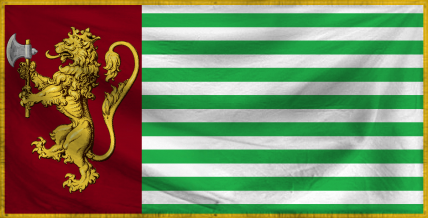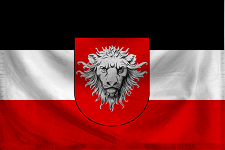Grozny, Chechnya, Marimaian Federation
Sunday, 31 July, 2022
It began, like such things so often does, with a comparatively small thing. In the Marimaian city of Grozny, deep within the mountainous Caucasus region, a teenaged girl was walking down the street minding her own business when the security services approached her. After a small exchange of words, the police officer pulled out his baton and started beating up the woman for the comparatively minor infraction – she donned a ribbon in her long, black hair that shared colors with the banned Ichkeriyan flag, which meant that she was considered a possible insurrectionist to the Marimaian security services and therefore worthy of a proper thrashing. Unfortunately for everyone involved, the Marimaian police officer exercised a bit too much zeal that afternoon and ended up beating the girl to within an inch of her life. When he had finished, he turned to find himself surrounded by an increasingly agitated crowd that demanded he stop and allow them to take her to hospital. Seeing himself outnumbered, the police officer gave the bleeding girl lying crouched up in a ball on the ground in front of him a final kick with his boot before allowing the crowd to take her away, making sure to snatch the offending ribbon from her now blood-caked hair before the ambulance arrived.
Unfortunately for the police officer, someone in the crowd had filmed the whole affair and uploaded it to various social media. It didn’t take long for the brutal graphic video to go viral both within and outside the borders of Marimaia, showcasing the Baibakov regime’s brutal repression of the Marimaian population. The video, already making the rounds, went viral when news leaked that the girl, seventeen-year old Nadia Murjakov, was revealed to have died en route to hospital from the excessive trauma. Before the regime could smother the news, it had spread throughout Grozny and beyond, causing a spark that would set the region ablaze.
Spontaneous demonstrations took place in Grozny that afternoon and evening, first outside the hospital where Nadia had been brought and officially pronounced dead where the crowds gathered to show their support to the grieving family that had showed up to claim the body of their dead kin. The compassion and grief with the Murjakov family quickly turned to anger when the hospital on the orders of the Marimaia Security Bureau refused to release Nadia’s body until it had been autopsied, allegedly to establish the cause of death. The crowds, well aquainted to the MSB’s ways, knew that this meant that the MSB intended to bury the truth like they always did when something that might backfire on the regime and its ways of staying in power occured, and they simply weren’t having it anymore. It was literarily the straw that broke the camel’s back. The crowds, which had quickly grown from a few dozen to several thousand, broke through the police cordon and retrieved Nadia’s body by force, hospitalizing ten police officers and two MSB officers in the process.
With the body returned to the family, the crowd collectively decided that they had already “crossed the Rubicon” and that they were going to show their discontent. With the courage of conviction and strength in numbers, the crowd left the hospital and marched on the Government quarter and the police station, intending to demand the extradition of the girl’s killer. The popular uprising spread across social media and was quickly picked up by both Marimaian and international media, and while the Baibakov regime quickly suppressed official reporting of the unrest, they had no such pull overseas. The coverage in turn made even more people turn out, and protests in other cities across the Marimaian Federation took place. In most cities, the initial protests were quickly and brutally quashed by the security services which had gone on high alert, but in Grozny, Ashtrakan, Rostov, Tiblisi and Gori, large enough protests and street violence took place and was reported.
The next morning, August 1, the regime had managed to restore at least a semblance of control. In Grozny, the police forces had withstood a literal siege of the central police station and had to be rescued by the MSB Interior Troops which had moved in and started clearing the streets with clubs and water cannons, hospitalizing dozens and arresting hundreds more. In Tiblisi, the Marimaian capital, the Presidential Protection Brigade from the Army had been deployed and showed no mercy, leaving twenty-two dead and several hundred wounded when they started firing live ammunition into the angry crowds. Throughout Marimaia, thousands had been detained by the MSB and it seemed the unrest had been stopped.
That belief lasted until the evening, when renewed protests took place in nearly all Marimaian cities, demanding that President-shash-dictator Fyodor Baibakov who had thus far remained very quiet take a firm stand and denounce the violence exercised in his name. President Baibakov chose to ignore this demand, which only further angered the people who were now turning out in the hundred-thousands range across Marimaia.
The protests continued for several days, until August 5 when President Baibakov finally held a public speech. In his stereotypical fashion, Baibakov held an elaborate animated speech in which he denounced the protests and stated that he believed that the people should stop being bothered about things they knew nothing about, and demanded an end to the protests that were disrupting the fabric of life in the Marimaian Federation. In his own mind, Fyodor Baibakov was quite pleased with his speech, believing that he had given the paternal guidance that the people – his “children” – needed, to which all the yes-men in the inner circle of the Baibakov regime agreed and indeed commended their Boss on.
Unfortunately for the Baibakovs, the people of Marimaia did not share their President’s opinion on this matter. In fact, they were downright furious at the leadership and considered that the President’s speech and support to the crackdowns broke the Marimaian social contract. In a matter of the seventeen minutes the speech took, the Baibakov regime lost the last semblance of legitimacy in the eyes of most of the various peoples that made up the Marimaian Federation.
What followed would set the Caucasus in flames.





